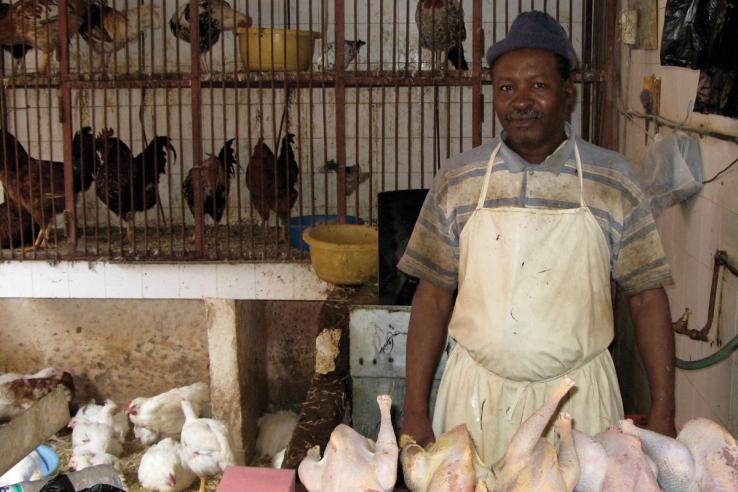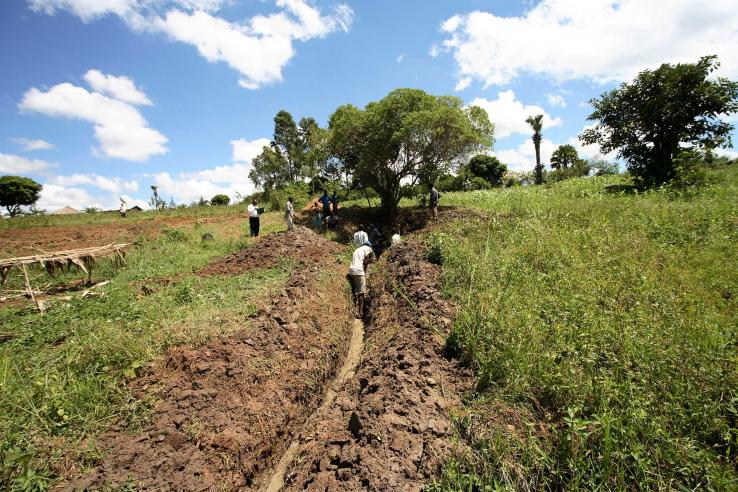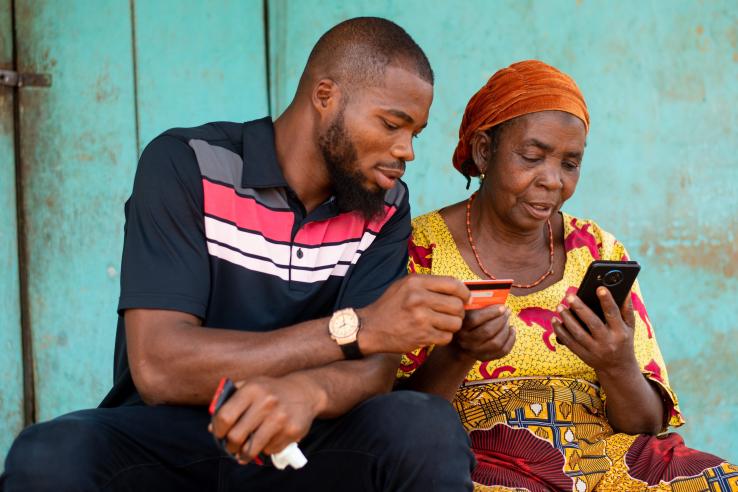Finance
Low-income households need effective financial tools to help manage and grow their money. Yet many of the financial services they can access are costly, unsafe, or not well-suited to their needs. To support financial inclusion efforts around the world, the Financial Inclusion Program at IPA partners with service providers, governments, and researchers to design and rigorously test financial services and programs encouraging healthy financial behavior among the poor.
In addition to supporting policymakers in applying evidence from randomized evaluations to their work, sector chairs and staff write policy insights that synthesize general lessons emerging from the research and condense results from evaluations in policy publications and evaluation summaries.

Policy insight
Digital financial services to improve formalized access and inclusion
Digital financial services have dramatically improved access to formal accounts, especially for low-income households and rural populations. Increased access to digital services has reduced remittance transaction costs, which has helped households share financial burdens and improve resilience.

Policy insight
Microcredit: Impacts and promising innovations
Findings on the impacts of microcredit continue to evolve. Early evidence from randomized evaluations in low- and middle-income countries showed that the classic microcredit model did not lead to transformative impacts on income or consumption for the average borrower across many contexts. However...

Evaluation
Information Campaigns to Increase Mobile Banking Adoption in Ghana
In Ghana, researchers worked with a bank that provides services to low-income customers with limited access to mainstream banking to evaluate the impact of sending pre-recorded informational voice calls and text messages on the adoption of mobile banking. Clients that received messages encouraging...

Evaluation
Investigating the Impact of Credit with Performance-Contingent Repayment in Kenya
Researchers conducted a randomized evaluation to test whether a performance-based repayment contract could outperform conventional microcredit contracts, or fixed-payment loans, in improving business outcomes and welfare for micro-distributors in Kenya. Micro-distributors who received flexible...

Evaluation
Encouraging Adoption of Rainwater Harvesting Tanks Through Collateralized Loans in Kenya
In partnership with Nyala Dairy Cooperative, researchers evaluated the impact of offering asset collateralized loans for rainwater harvesting tanks on both credit access for dairy farmers and profitability for the lender. Using the tanks as loan collateral led to higher take-up of loans by farmers...

Evaluation
Mobile Phone Data Compared to Household Surveys to Evaluate the Impact of Cash Transfers in Togo
In Togo, researchers conducted a randomized evaluation to test the effect of cash grants on people's welfare and if using mobile phone data in impact evaluations yielded the same results as survey data. They found that the cash grant program increased food security, mental health, and self-perceived...

File: Policy publication
Winners and Losers: The Benefits and Dangers of Credit
Providing large loans to small businesses in Egypt had no impact on profits for the average borrower, but entrepreneurs predicted in advance to be top performers saw much higher returns than their peers.




